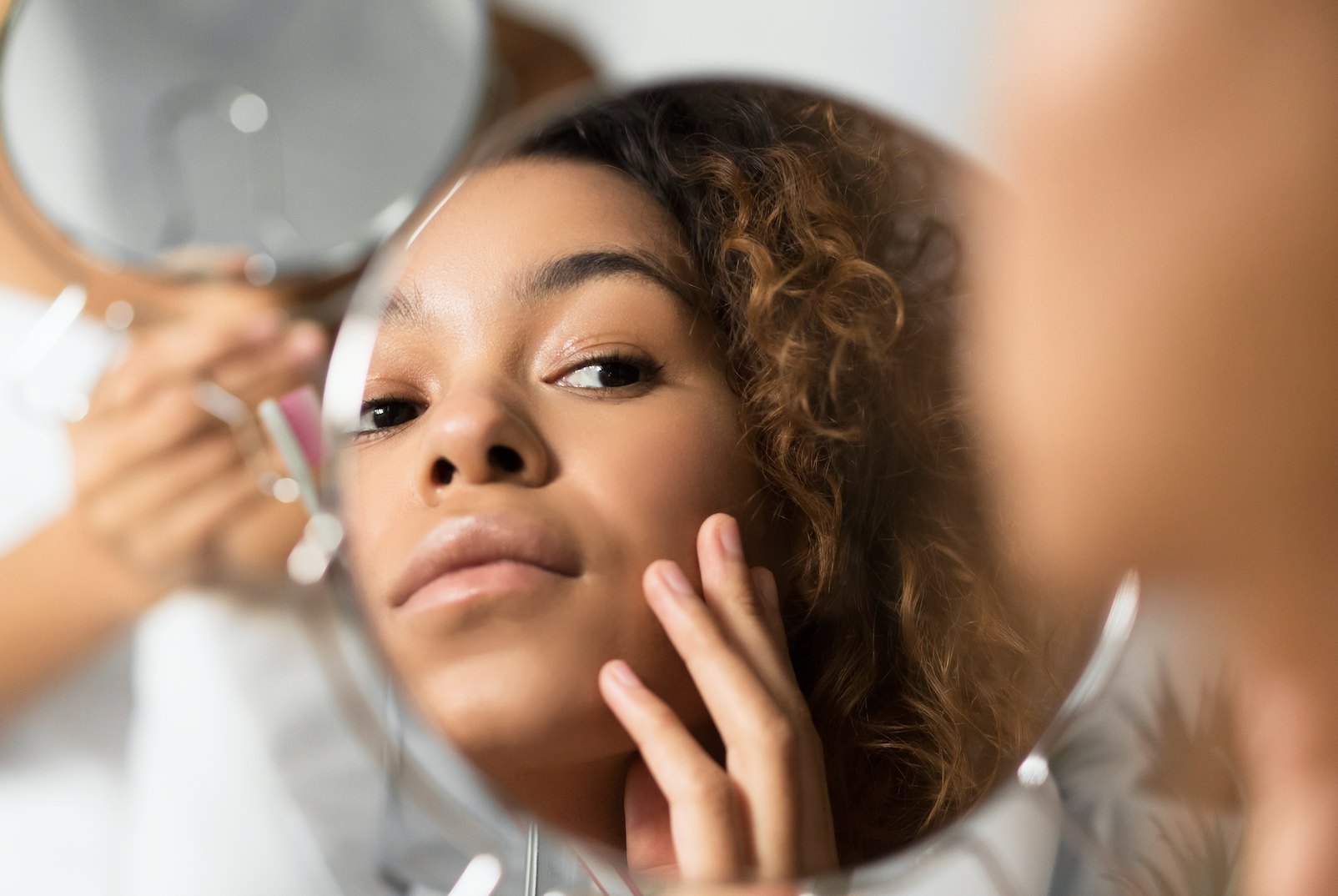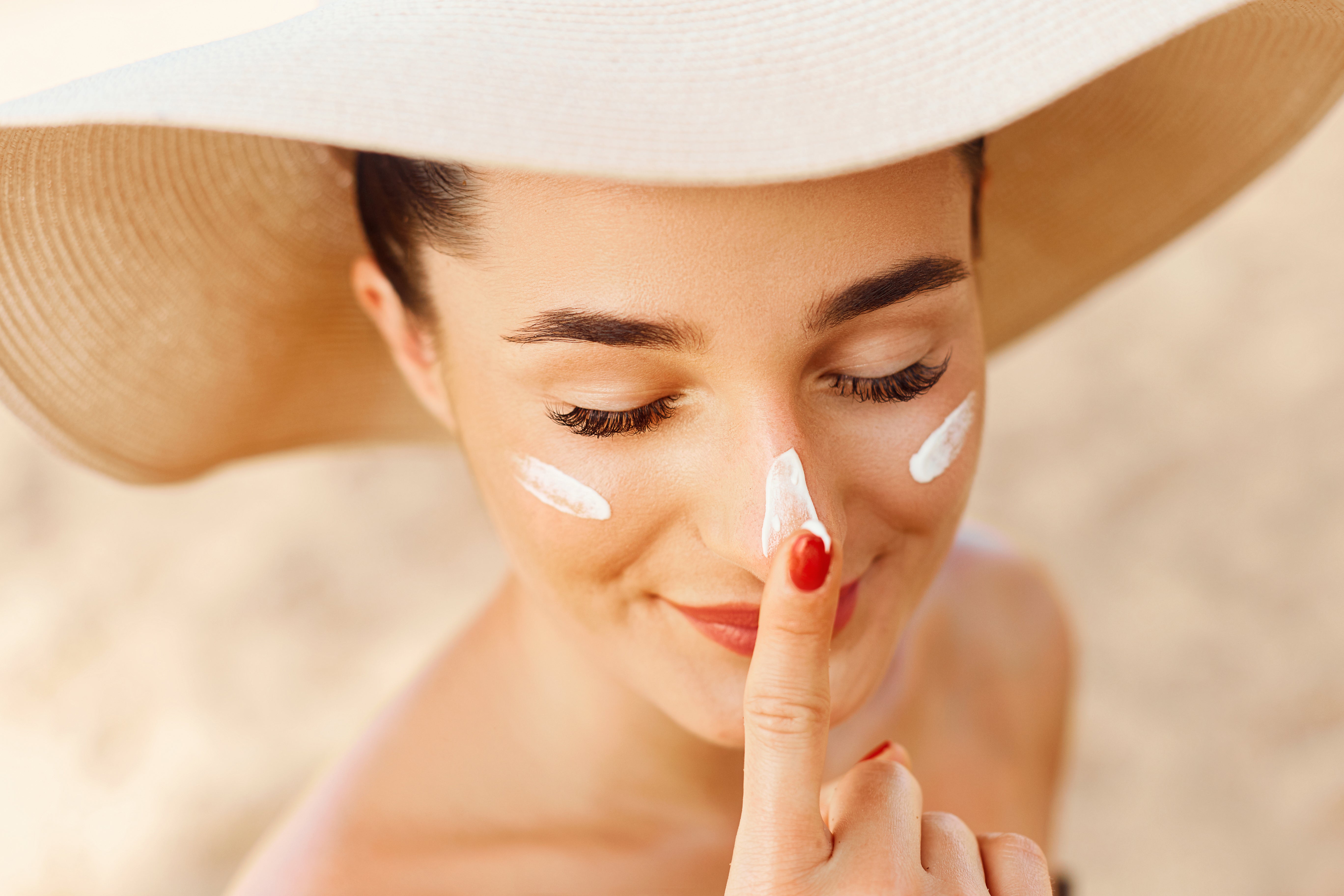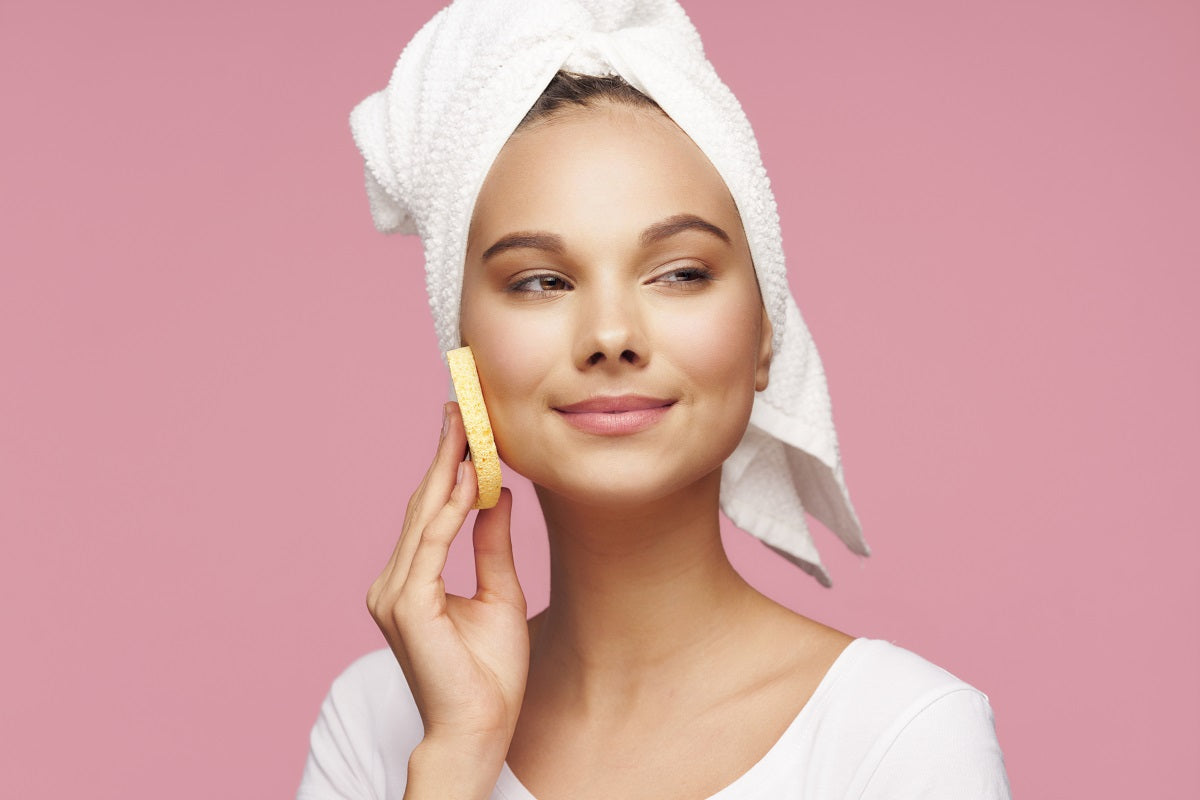
Does Zinc Help Acne?
Acne is one of the most painful and frustrating skin issues that many people experience. And if you suffer from its telltale pimples and blackheads, you’ve probably tried everything to get rid of them for good: swapping late night In-N-Out burgers for shots of apple cider vinegar, dabbing problem areas with your toothpaste, manifesting clear skin in your journal—you name it.
But have you tried treating your acne prone skin with zinc?
Zinc is a mineral famous for its cold-crushing powers, but does zinc help acne? This anti-inflammatory powerhouse shows promise as a key player in the fight against pimples. For a full understanding of this nutrient’s potential as a blemish-buster, read on. We’ll break down our breakouts and show you the best ways to beat them with zinc.
What Is Zinc, Really?
Zinc—you’ve heard it mentioned in countless cough drop ads and it’s probably in your immune-boosting multivitamin. But what is it, exactly and what does zinc do for skin?
Zinc is a mineral that supports our bodies and helps them function. Zinc plays a major role in the smooth operation of our metabolism and success of our immune system and even assists our bodies in the construction of proteins and DNA.
With its metabolic and anti-inflammatory properties, zinc is fundamental to the body’s ability to address a host of issues, including:
- Wounds
- Diarrhea
- Macular degeneration
- Fertility problems
- Chronic disease
- Osteoporosis
- The common cold
- Peripheral neuropathy
- Memory issues
To sum it up, if there was an award show for nutrients, we would definitely nominate zinc for Best Supporting Mineral.
Without adequate levels of zinc, the body suffers from an increased risk of infections like pneumonia, degenerative conditions like vision loss, and problems with cognition. (As if it wasn’t already a massive struggle to track down your headphones.)
Zinc deficiency can also take a toll on your skin. Research shows that zinc levels play an important role in wound healing, so it follows that issues like atopic dermatitis and, yes, acne can all be aggravated by dwindling zinc reserves.
So, can we harness the power of zinc to combat the most aggravating acne woes? Let’s dig deeper.
From A to Z (Acne to Zinc)
As a powerful anti-inflammatory nutrient, zinc does the heavy lifting for your whole body—and that includes your complexion.
For those of us who suffer from acne, zinc can be a strong ally in the fight against acne’s brutal symptoms including swelling, redness, and scarring.
Who Gets Acne?
If you’ve ever stared down a phalanx of stubborn blackheads in the mirror, tried to hide a blemish beneath a Band-Aid, or called off a date last minute because you weren’t about to let your cystic pimple play third wheel, you know that acne can be as persistent as it is painful.
It’s also incredibly common. In fact, it is one the most common skin conditions that we face (pun intended), impacting 80% of people ages 11 to 30.
Many sufferers experience acne during puberty and as teenagers undergoing hormonal imbalances and changes, but adults can struggle with breakouts too.
The same elements that cause acne in teenagers are also a factor for those who suffer from adult acne. These are:
- Excess oil production
- Skin cells clogging pores
- Bacteria
- Inflammation
- Hormones
- Genetics
- Stress
- Menstruation
- The use of certain hair and makeup products
- Diet
What Does Acne Look Like?
The expression of acne can range widely depending on the person and can even appear differently on a single person at different junctures depending on hormonal and lifestyle factors (i.e. where you are menstruating or how many Hot Cheetos you’ve been pounding).
Most commonly, acne presents as:
- Papules – These are small reddish bumps.
- Pustules – These are small reddish bumps filled with pus.
- Nodules – These are large, solid pimples that occur deep within the skin and can be very painful and tender to the touch.
- Blackheads – These are small black bumps at the surface of the skin filled with excess sebum (oil) and dead skin.
- Whiteheads – These are small white bumps at the surface of the skin filled with excess sebum and dead skin.
- Cysts – These large, painful bumps are filled with pus and can cause scarring.
You might have experience with some—or all—of these blemishes. And if you do, you know that they look and feel extremely distinctive. So, is zinc a suitable treatment for each type of spot? And what can it offer when it comes to acne scars?
What Does the Science Say About Zinc and Acne?
Dr. Sejal Shah, a New York City-based dermatologist, argues that the science backs up claims of zinc’s utility as an acne treatment.
“Studies that have investigated zinc alone or zinc in combination with another medication have found that zinc can help reduce acne,” he tells Allure.
Indeed, a National Institutes of Health study from 2014 found that participants with severe acne had lower zinc levels than participants with clear skin.
Thanks to its anti-inflammatory superpowers, zinc is a worthy adversary for the kinds of pimples caused by inflammation (looking at you, nodules and cysts) and a good tool for preventing scars.
But zinc’s benefits for the skin go beyond combating inflammation. Research also suggests that zinc could quash whiteheads and blackheads by mitigating sebum production.
Less oil = fewer pimples, and fewer pimples mean less scarring down the road.
Okay, But How Should I Use Zinc For My Acne?
Studies argue that zinc might deserve a starring role in our skincare regimens. But now that we’ve answered the question “is zinc good for acne?” Let's investigate the most effective ways to leverage this mineral against pimples.
You can up your zinc game with supplements, changes in your diet, or topical creams and salves. If you think you might have a zinc deficiency that’s exasperating your acne, talk to your doctor about what supplements might work for you. Or, if you are interested in incorporating zinc into your acne-fighting toolkit, seek out lotions, serums, and gels that contain the mighty nutrient.
How Much Do I Need?
According to NHI, the daily recommended amount of zinc for adult men is 11 milligrams while women need 8 milligrams.
If hitting those daily recommended amounts seems daunting, don’t worry. So many amazing eats are filled with zinc—and it’s easiest for your body to absorb the nutrient just from chowing down.
The Kitchen Zinc: Incorporating Zinc in Your Diet
Who knew that treating acne could be so delicious? One of the easiest ways to ensure that you’re getting enough zinc—and nipping your breakout in the bud—is to pay attention to what’s on your plate.
Some zinc-rich foods include:
- Beans
- Red Meats
- Nuts
- Eggs
- Fish
- Whole Grains
- Zinc-fortified Cereals
Top of the list? Oysters. That’s right. Order the seafood tower. Your skin will thank you.
Zinc Supplementation
Because it’s easier for bodies to absorb zinc from animal products than grain and vegetable sources, vegans and vegetarians might benefit from dietary supplements that contain zinc.
But oral zinc supplements are not just for plant-based folks. Studies have shown that both oral zinc gluconate and oral zinc sulfate are effective in improving skin health and battling breakouts.
Just remember, when it comes to steaks or supplements, moderation is key. Make sure that you don’t consume more than 40 milligrams of a zinc supplement per day.
Topical Treatments
Oral supplements are a secret weapon for balancing zinc levels and besting pesky bumps. But topical treatments can come in handy for managing moderate to mild acne and calming inflamed skin.
Zinc lotions and spot treatments offer noticeable relief for stressed-out skin, soothing inflammatory acne while preventing too much sebum production (if you have oily skin)—and that means preventing new pimples from popping up to ruin your day.
Zinc makes an effective spot treatment for cystic pimples—those deep, painful blemishes that tend to overstay their welcome and never do the dishes.
Best of all? Zinc is all natural, making it a commonsense addition to many organic beauty and wellness routines.
So, if you are looking to add to your arsenal, consider sunscreen products that contain non-nano zinc oxide, like our Pure Protection Invisible Mineral Sunscreen SPF 30. Why not protect your skin from harmful UV rays and acne at the same time?
Clearer Skin with Zinc and Averr Aglow
When it comes to acne, there’s a ton of information floating around about what to do, eat, take, and use to stop blemishes. For those that struggle with occasional pimples or frequent breakouts, we’ve seen it all before and have tried everything—even sacrificing chocolate—to no avail.
Don’t give up! Studies show that there’s a promising treatment in the fight against acne: zinc.
As it suppresses sebum production, zinc can help prevent pimples from forming and subsequently prevents scars (no pimples = no scars). And, thanks to its mega anti-inflammatory properties, this small but mighty nutrient soothes problematic patches of sensitive skin, mitigates existing scars, and even eases infamous cystic pimples.
To make sure you’re fully equipped in the battle against blemishes, make sure to eat a zinc-rich diet, consider supplements if your doctor thinks you might have a zinc deficiency, and enhance your beauty routine with natural-based, nutrient-rich skincare from Averr Aglow.
Sources:
- Medical News Today. What are the health benefits of zinc? https://www.medicalnewstoday.com/articles/263176
- Medical News Today. What you need to know about acne. https://www.medicalnewstoday.com/articles/107146#_noHeaderPrefixedContent
- Cleveland Clinic. Acne. https://my.clevelandclinic.org/health/diseases/12233-acne
- Harvard Health Publishing. Adult acne: Understanding underlying causes and banishing breakouts. https://www.health.harvard.edu/blog/adult-acne-understanding-underlying-causes-and-banishing-breakouts-2019092117816
- Medical News Today. Zinc for acne: Does it work? https://www.medicalnewstoday.com/articles/zinc-for-acne
- Allure. Does Zinc for Acne Really Work? Dermatologists Weigh In. https://www.allure.com/story/zinc-for-acne
- BioMed Research International. Correlation between the Severity and Type of Acne Lesions with Serum Zinc Levels in Patients with Acne Vulgaris. https://www.ncbi.nlm.nih.gov/pmc/articles/PMC4135093/
- Greatist. Zinc for Acne: Is this Mineral the New Zit Zapper? https://greatist.com/health/zinc-for-acne
- Greatist. Clear Your Skin 101. https://greatist.com/health/best-acne-treatment






